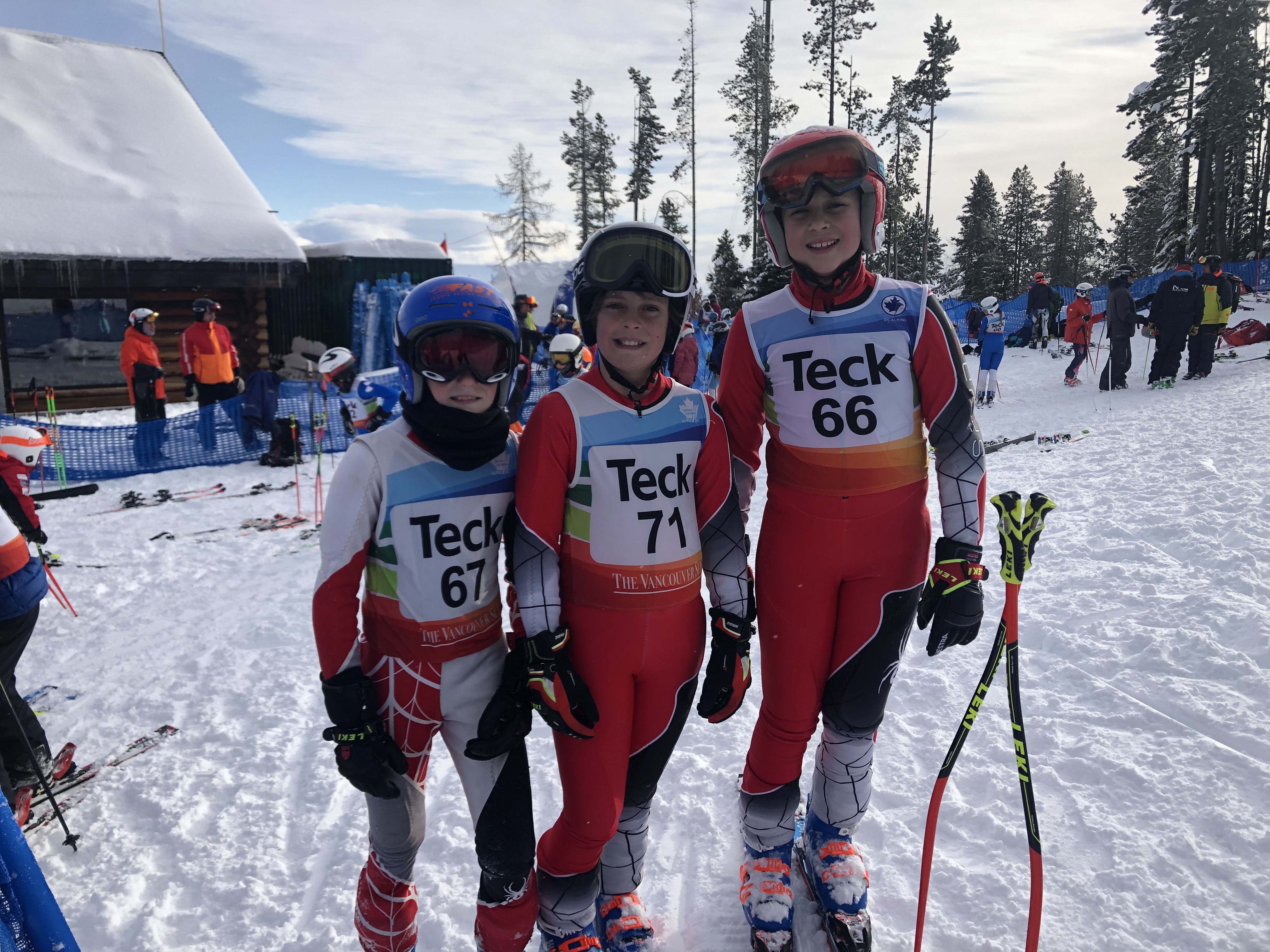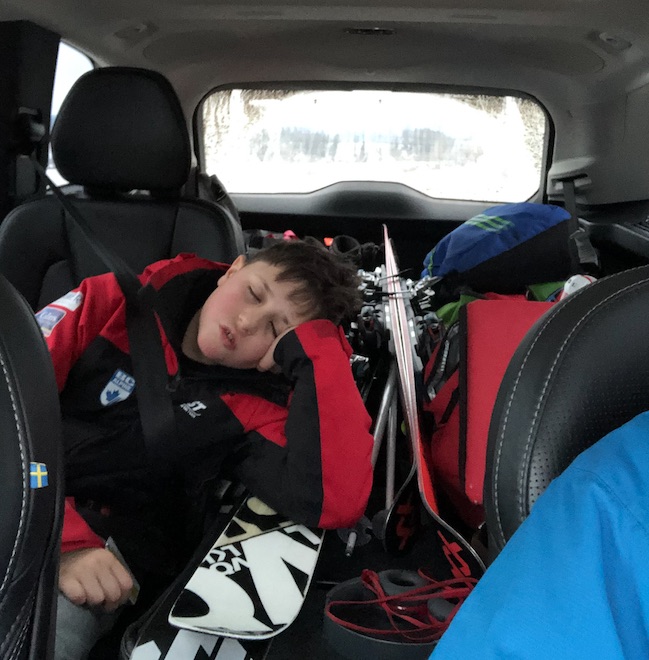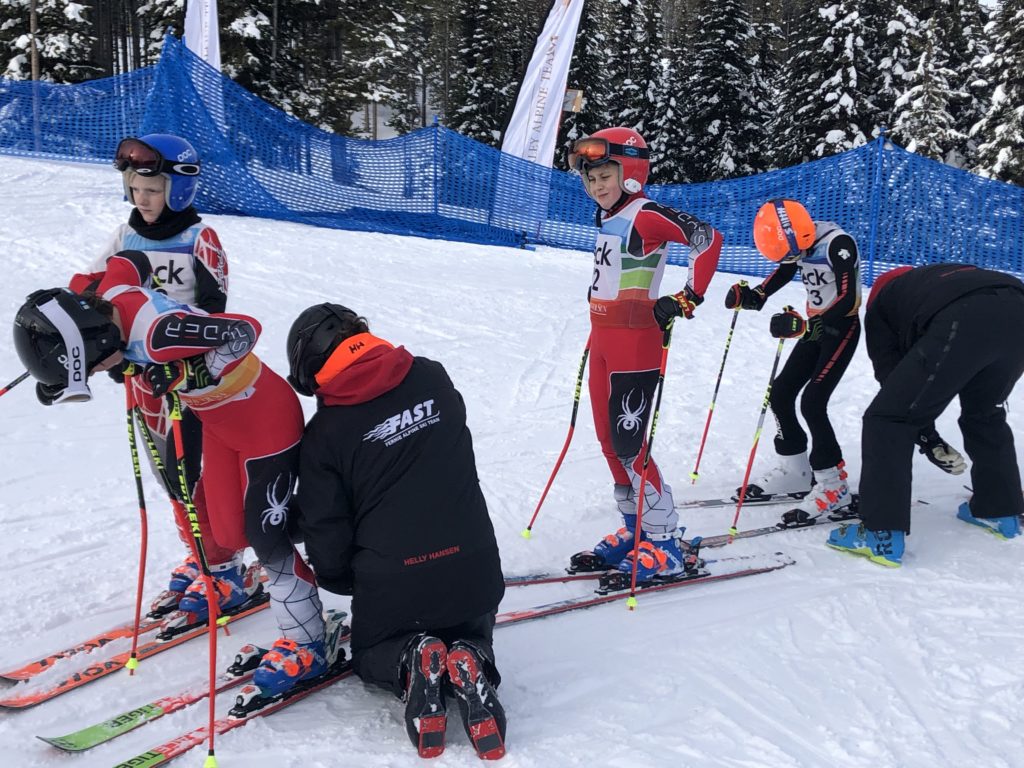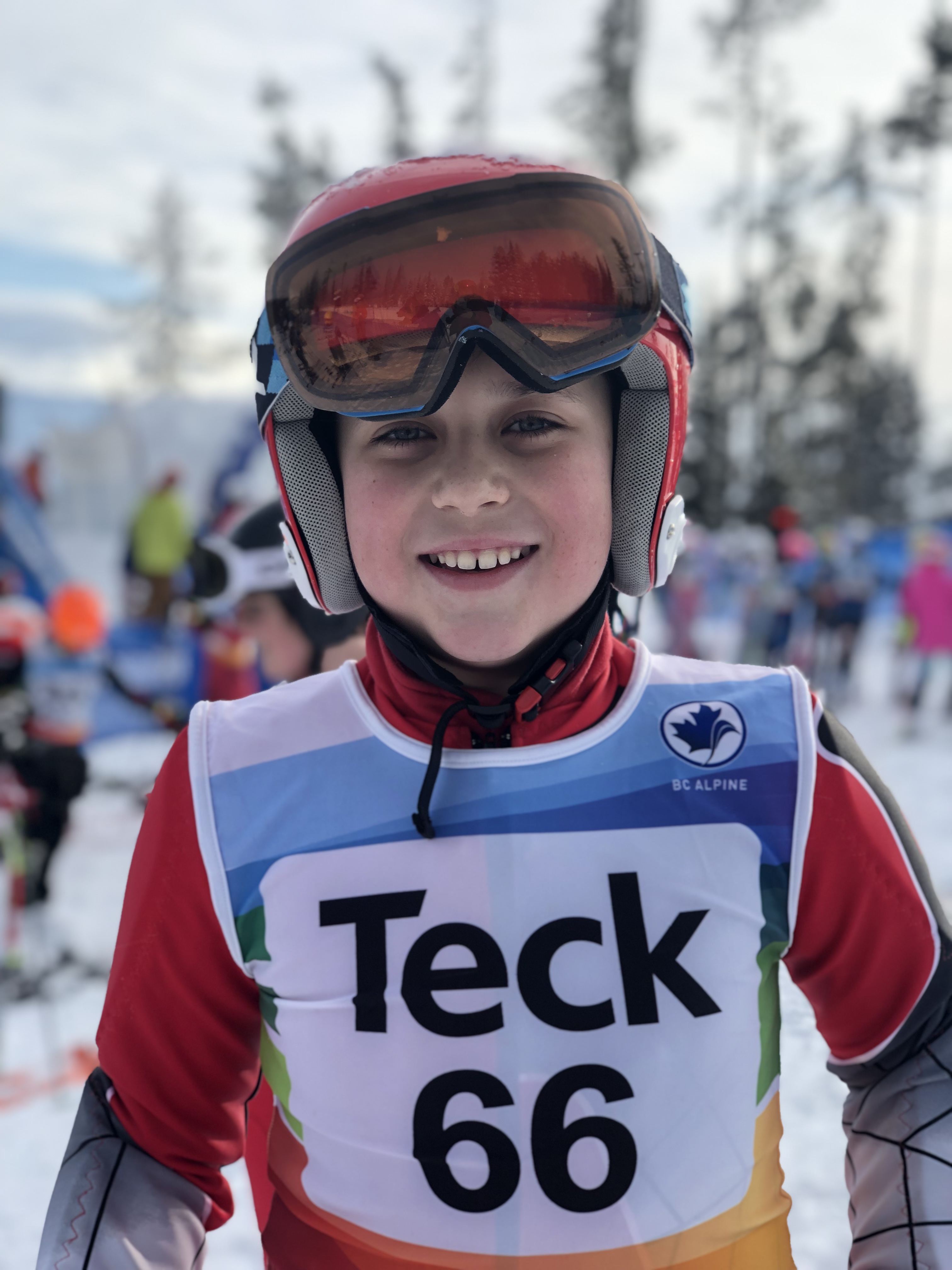
There is a moment when we transition from the insulated innocence of our childhood to the cold cruelness of the real world. And that moment, for my youngest child, Jacob, a sweet and caring prince of a kid, occurred on day 4,293 of his life, approximately three months shy of his 12th birthday and precisely the instant he crossed the finish line at the first race of his U12 Kootenay Zone Giant Slalom at Kimberley, B.C. at 12:03 p.m. on Saturday, January 19th, 2019.
You see, every 11 year old boy has a little Walter Mitty in them. In fact, we all do. That side of our character that indulges in “fantastic daydreams of personal triumphs” as The American Heritage Dictionary put it. In Jacob’s case, it was to triumph over the field of 30 other racers from across southeastern B.C. and Alberta, stand atop the podium, give a wink to the U14 girls, raise his arms in victory and soak in the adulation that would invariably follow.
In reality, after race 1 of 4, he finished 25th out of 30, fully 15 seconds behind the first place kid (who arrived at the race in a Mercedes bus, wrapped in the logo of his racing team, a team of one, named after, well, him, all whilst accompanied by his personal coach and, no doubt, a cast of countless other unseen advisors). Ski racing is totally unfair except for the fact that the fastest kid wins, which is actually quite fair. It’s just such a cruelly binary proposition: One kid wins, every other kid loses.
So, after race 1 and being the amateur sports psychologist I am, I haplessly tried every angle I could think of to boost Jacob’s shaken confidence ahead of the second race, later that same afternoon.
“You did great, kid!!”
“No I didn’t. I suck.”
“I’m really proud of you!”
“Why? I suck.”
“But did you at least have fun?!”
“What do you think?”
“Um, maybe try starting that turn a bit earlier and putting more weight on the downhill ski??”
“Thanks, Tips. I did.” 
Running out of ideas, I changed tactics and suggested through his tears and my depleted empathy reservoir, perhaps overly firmly, that skiing isn’t meant to make him sad and if that’s what it does, maybe he shouldn’t do it. And maybe we shouldn’t go to next month’s race in Nelson that he’s been looking forward to for, like, a year. Yaaaaaa, No. Good one dad.
Cut me some slack. They don’t have a chapter on this in What to Expect When You’re Expecting. The book ends at the part where the kid arrives. After that, you’re on your own. Three kids and a combined 42 dad-years later, I’m no better than most dads at finding just the right thing to say at just the right time.
Anyway, after another 25th place finish in race 2, I again changed my tactic. As we sat in our hotel room on Saturday night, sipping a beer (me, not him, though the thought did cross my mind), we set two very simple goals for the following two races to come. In race 3 on Sunday morning, we were going to beat this one kid who finished just ahead of him in race 2. And in race 4, we were going to beat the other kid who finished ahead of him, well, all season. As these two kids are his two best friends on the team, it made me feel a little dirty inside but I felt like we were onto something and I figured the parents, who witnessed my day one on-course motivational masterpiece, would understand if it ever got out…which it now is.

And so it was, that in race 3 we beat the one kid and in race 4 we beat the other kid (who fell near the finish line but, hey, a win’s a win!). That we finished 21st in that final race didn’t matter; we’d achieved our goals and we’d live to race another day.

On the long, quiet drive home as Mr. Mitty slept in the backseat no doubt dreaming of conquering the Hahnenkamm at Kitzbuhel followed by dinner with Lindsay Vonn, I reflected on the lessons I learned and how alarmingly applicable they are to my every day here at the firm.
In any given search, there might be 100 prospective candidates in the race, yet only one wins. And, as with our kids, we are left to relay the news to all but the winner as to what they could have done better; how next time they need to perhaps start the proverbial turn earlier and place more metaphorical weight on their figurative downhill ski.
The nervous energy in the start area as each kid waits their turn to hurl themselves down the mountain is also strikingly similar to the anxiousness we feel in our holding room when we retrieve an executive and bring him or her down the hall and into the boardroom to meet our client, their prospective new employer, hurling themselves into the unknown, too.

In ski racing, as in life, the course is set and you have to make the turn where someone else tells you to make it, not where you want to make it. And you have to do it as fast as you can without losing an, or your, edge.
In ski racing, as in life, you are being benchmarked against not only your own expectations of yourself but against every other competitor, too. We constantly remind executives (and there’s some Walter Mitty in each of them, too, I assure you) that our client is not only benchmarking them against the requirements of the role – they wouldn’t be in the room if they weren’t supremely qualified – but also against every other candidate interested in that role; every other skier in that start hut.
In ski racing, as in life, the conditions are rarely ideal. The light can be flat for you, yet perfect for someone else who goes down moments later; the course may have been slipped just after you raced, not before; the wax you applied may have been a degree too cold or too warm for the conditions.
In ski racing, as in life, it is arguably more sensible and achievable to set a series of small, attainable goals, rather than a mountain of largely unattainable big, hairy, audacious ones.
However, the good news, unlike with ski racing, is that in life the ones who show up  in a personalized, wrapped Mercedes bus emblazoned with their own initials and a personal entourage aren’t usually the ones who win.
in a personalized, wrapped Mercedes bus emblazoned with their own initials and a personal entourage aren’t usually the ones who win.
And the better news is that every one of these kids who has the courage and the fortitude to put themselves out there, race against themselves and the competition, conquer their fears, achieve their goals, demonstrate the class and resiliency to congratulate their victor and the maturity to overcome their disappointment, will be far better adults because of it.
Regards,
Adam